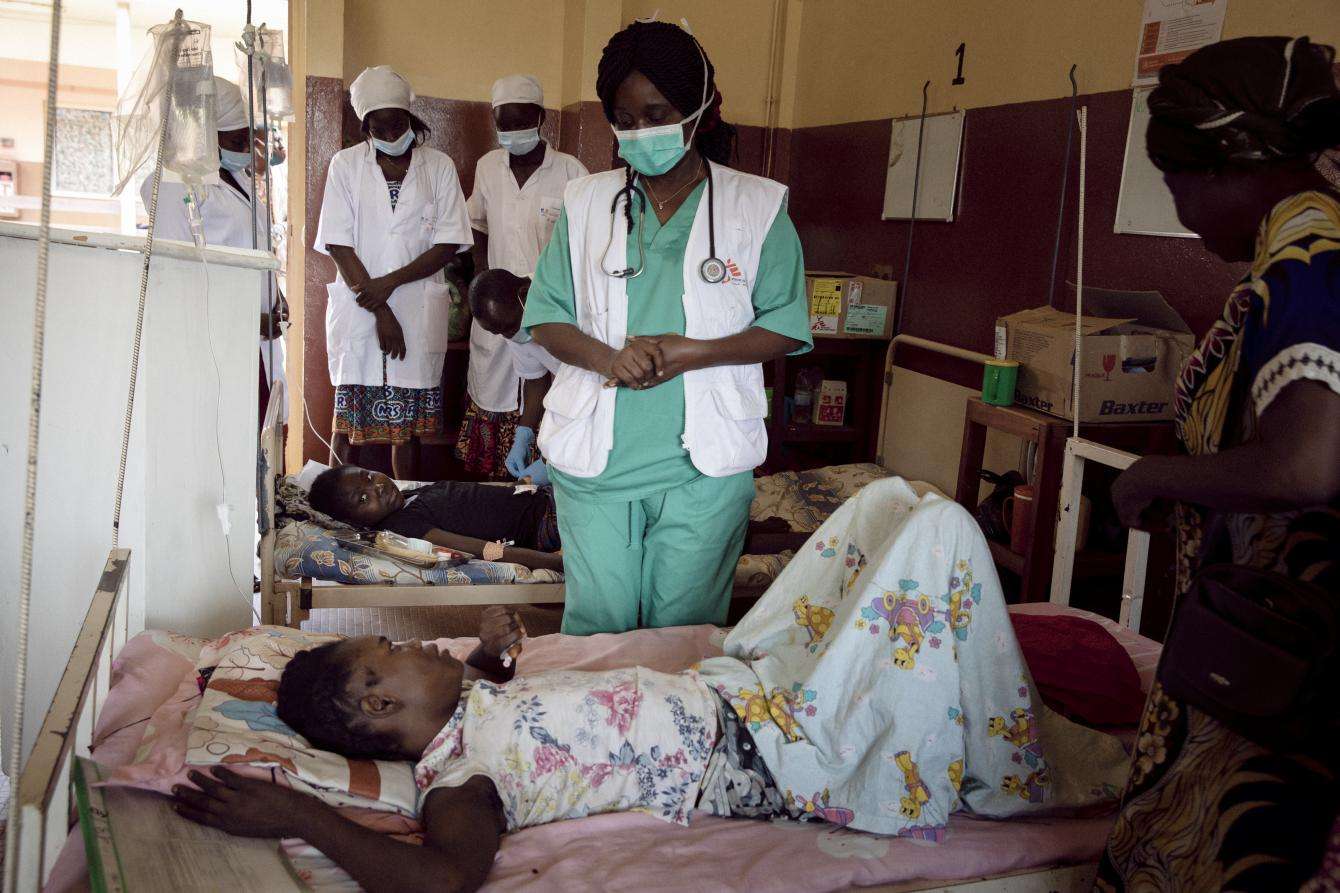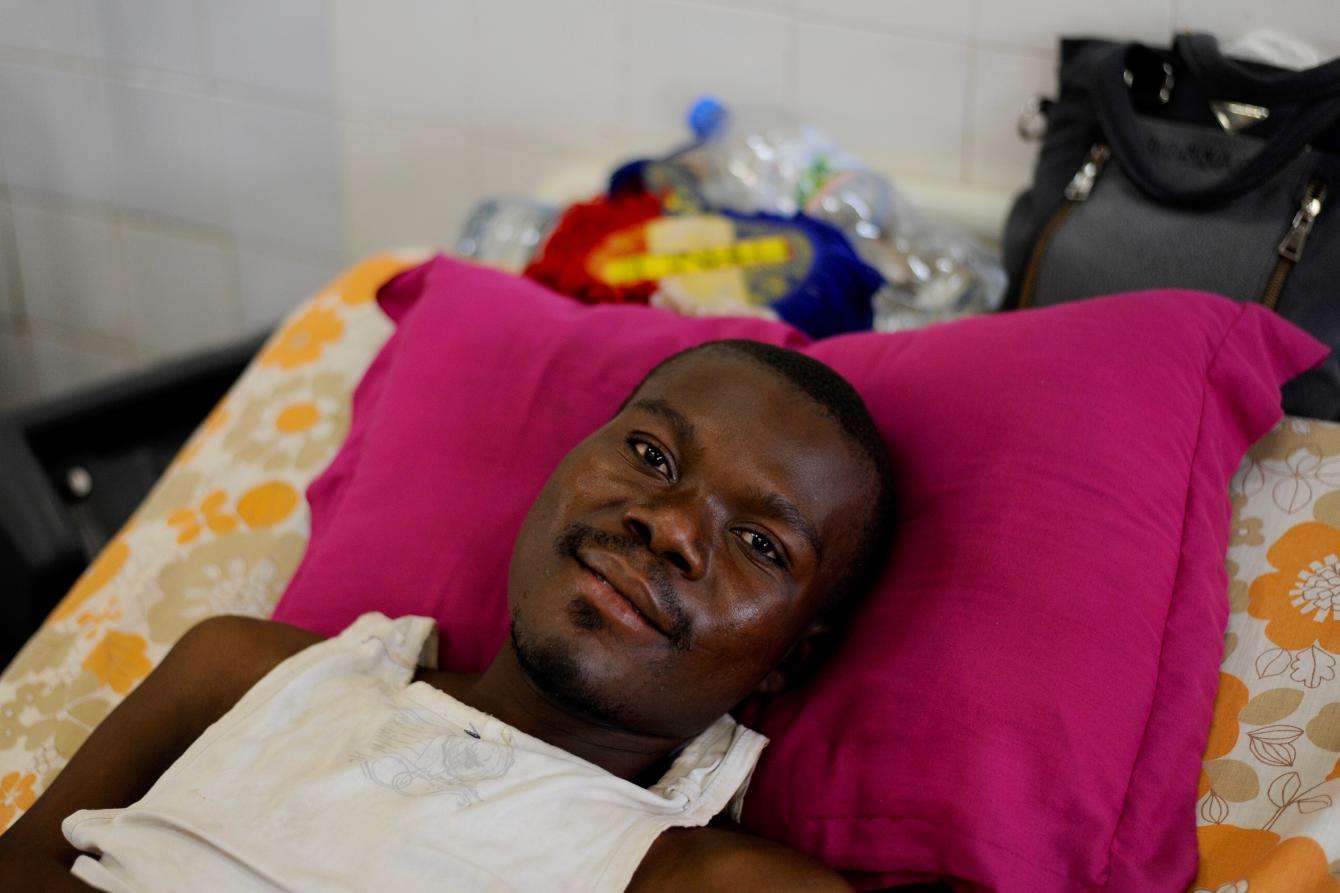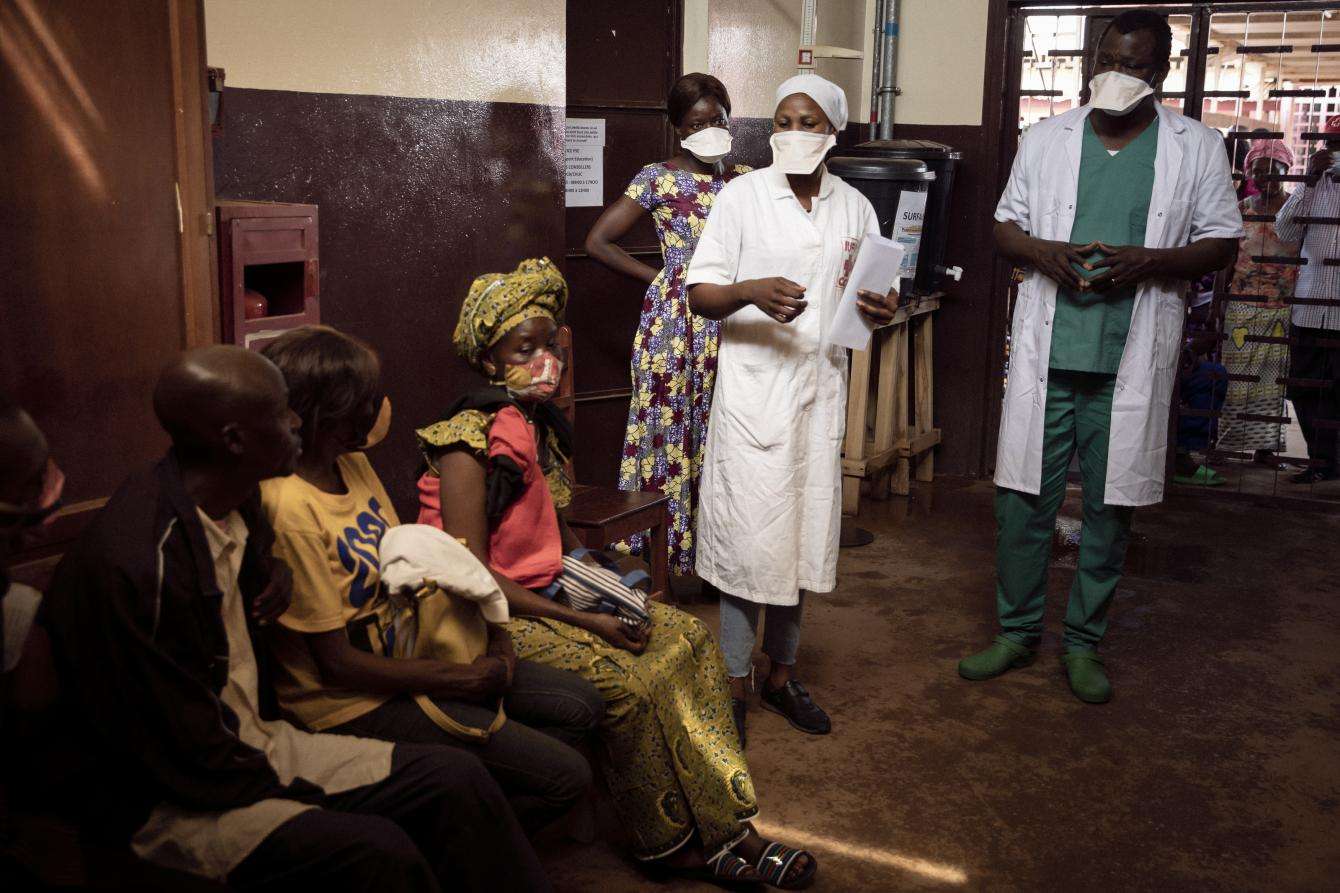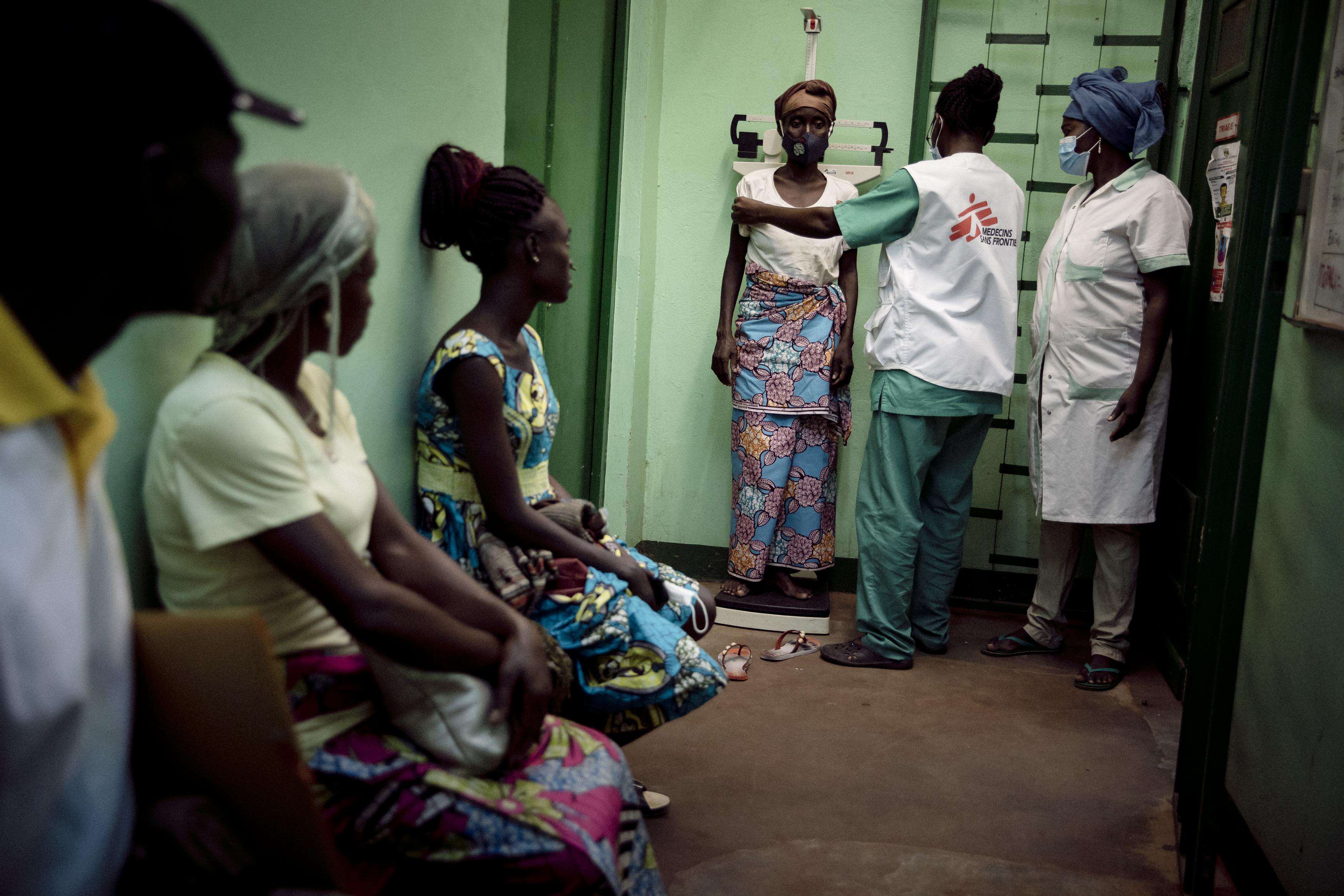Some 38 million people are living with HIV/AIDS, over two-thirds of them in sub-Saharan Africa. The HIV crisis in Central African Republic (CAR) is particularly acute—fueled by extreme poverty, pervasive violence, a dire shortage of health facilities and health staff, long-existing supply chain issues for lifesaving antiretroviral (ARV) medications, and significant barriers to early detection and treatment.
HIV remains a leading cause of death in the country. Last year, around 4,800 people died of HIV/AIDS in CAR, while some 5,500 new cases are confirmed annually.
A deadly obstacle course
“While CAR has the highest HIV prevalence across the West and Central African region, fewer than half of the estimated 110,000 people living with HIV are on ARV treatment,” says Laurent Lwindi Mukota, HIV medical advisor for Doctors Without Borders/Médecins Sans Frontières (MSF). “The situation is even more alarming for children under 15: of those who are aware of their HIV status, fewer than a quarter are on treatment.”
Life expectancy in CAR is the lowest in the world, partly due to years of conflict and insecurity. The country is completely dependent on external funding for its response to HIV—and international support so far has fallen short of the needs. Few of the limited number of health facilities offer HIV testing and care, and many people living with HIV have to make long and often dangerous journeys to find a clinic where HIV services are available. Those who do manage to reach a clinic sometimes find empty shelves instead of much-needed drugs, making it impossible for them to continue their ARV treatment.
“In a country where most people live on less than US$2 a day, financial barriers to care are exacerbating this situation,” says Marie Charlotte Bantah Sana, head of the program against communicable diseases, run by the Ministry of Health and Population. “Most people need to pay to get an HIV test, and then have to pay for several extra tests before being allowed to start treatment. As a result, 30 percent of all patients invited for a pre-treatment assessment do not come back to start their medication.”
Poor access to information about HIV/AIDS and stigma surrounding the disease add to the deadly obstacles to care. These factors help explain why nearly two-thirds of HIV patients in CAR are diagnosed with an advanced stage of infection by the time they start ARV treatment.
Supporting patients with advanced HIV
In this critical environment, MSF works closely with the Ministry of Health and Population along with other key players to support access to diagnosis, treatment, and care.
In the capital city, Bangui, HIV prevalence is twice the national average. Since late 2019, MSF teams have provided free medical care and psychological support for patients with advanced HIV who are co-infected with tuberculosis (TB). We are the only organization in Bangui to provide this specialized care. MSF is also implementing a referral system between the hospital and peripheral health centers that will be further developed in the coming months.
One year after the start of MSF’s HIV/AIDS project at Bangui’s Centre Hospitalier Universitaire Communautaire, 1,851 patients have been admitted for HIV treatment, including 558 patients newly diagnosed with HIV.

“I was at the hospital accompanying a relative when I started having a fever and symptoms of malaria,” says Reine, a 34-year-old widow and mother of two. “During the consultation, the medical team offered to get me tested. This is how I stumbled onto my condition. I was immediately put on treatment. I had to go back to the hospital a few days ago because I got very sick again. I am now cared for, and I feel better day by day.”
Anita, a mother of six, also had no idea she was HIV-positive, despite feeling unwell for some time. “It has been a while that I’ve felt unhealthy, but I did not know I had AIDS. I fell sick two weeks ago and was brought to the hospital to receive care. I learned about the disease when I arrived here.”
Outside Bangui, MSF provides treatment for people living with advanced HIV in Paoua, Carnot, Kabo, and Batangafo.

Increasing access to treatment through community groups
To help increase people’s access to treatment, MSF has set up “community ARV groups” in Bambari, Batangafo, Bossangoa, Boguila, Carnot, Kabo, Paoua, and Zemio. Through this system, groups of people living with HIV and in stable condition designate one of their members to get drug refills for the collective. This helps reduce their transportation costs and time spent in medical consultations.
In addition to making treatment more accessible, these groups also help patients self-manage and participate in their own treatment. They encourage peer support and adherence to treatment, in a country where stigma against people living with HIV remains a harsh reality. “In our group, one member goes to the hospital every year to get the treatment for the 10 other members,” says Serge, part of an MSF-supported community ARV group in Carnot. “This system is important because some people are ashamed to go to the hospital to get their HIV treatment.”
Members of these groups are leading advocates for HIV prevention and are proving that a community approach can be extremely effective. They help ensure that patients can continue their treatment even in extremely difficult and dangerous circumstances, as in conflict-affected areas in CAR.
This community-led initiative has proved to be even more important in the context of COVID-19, when access to health structures was reduced due to the infection prevention and control measures imposed to prevent the spread of the coronavirus.

By the end of 2020, MSF had helped set up 276 community ARV groups in CAR, representing some 2,300 patients.
“In all projects where the community ARV group system has been implemented, the number of people living with HIV who are joining these groups is constantly growing,” says Laurent Lwindi Mukota. A similar system has been set up in other African countries where HIV prevalence is high, including Mozambique, South Africa, Zimbabwe, and Democratic Republic of Congo.
In 2019, a total of 6,600 people living with HIV were on ARV treatment via MSF-supported health facilities in CAR. Yet, there is still important work to do in order to decentralize care, destigmatize the disease, and make sure that HIV testing and treatment are free and accessible to all. The country's fragile health system, further weakened by years of violence, displacement, and insecurity, continues to struggle with the high burden of HIV. While progress has been made over the past decade, there is an urgent need to increase efforts—and to increase investments—to bring free HIV testing and care within reach for everyone who needs it.




